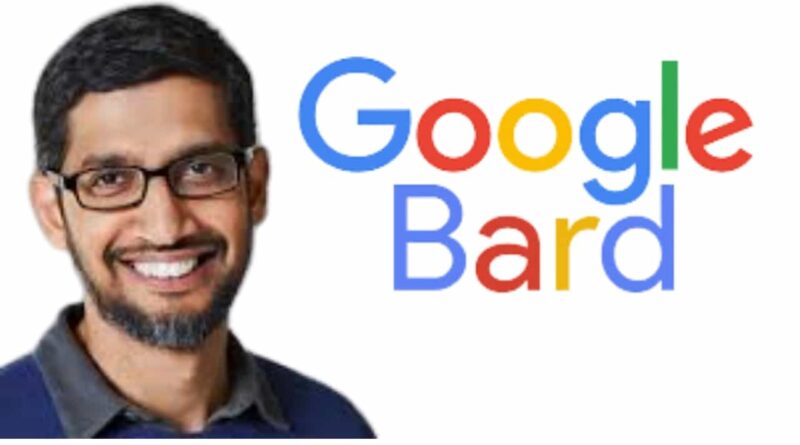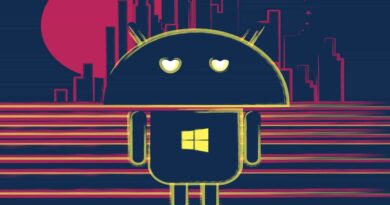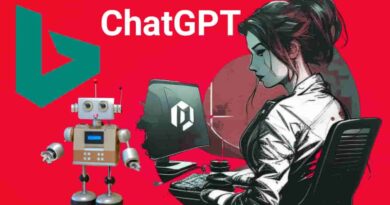Google Bard: Exclusive Revolutionizing Creativity with AI-Generated Poetry
Google Bard: Exclusive Revolutionizing Creativity with AI-Generated Poetry
Google Bard: Revolutionizing Creativity with AI-Generated Poetry
Google Bard Revolutionizes Poetry
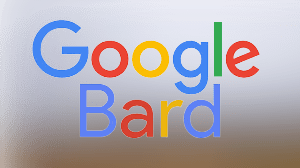
google bard
Title: Google Bard: Revolutionizing Creativity with AI-Generated Poetry
Introduction:
In a world where artificial intelligence (AI) continues to shape our daily lives, Google has once again pushed the boundaries of technological innovation with its latest project, Google Bard. This remarkable AI-powered tool is designed to generate poetry that evokes emotions, captures the essence of human experiences, and pushes the boundaries of creative expression. In this article, we delve into the fascinating realm of Google Bard and explore how it is revolutionizing the art of poetry.
1) The Birth of Google Bard:
1.1 Pioneering AI in the Creative Domain
Google’s commitment to exploring the potential of AI in various domains led to the development of Google Bard. By harnessing the power of deep learning algorithms and extensive training in vast collections of literary works, Google engineers created an AI capable of producing poetic masterpieces.
1.2 The Perfect Blend of Tradition and Innovation
Google Bard draws inspiration from centuries of poetic tradition while introducing novel elements of creativity. It seamlessly blends classic structures and forms with modern themes, allowing for an impressive fusion of the old and the new in poetry.
2) Unleashing AI’s Creative Potential:
2.1 Evoking Emotions and Imagery
Google Bard has mastered the art of evoking emotions through its poetry. Through the analysis of countless human-written poems, the AI has developed an understanding of the nuances of language, enabling it to craft verses that resonate deeply with readers. From love and joy to sorrow and melancholy, Google Bard’s poetry runs the gamut of human emotions.
2.2 Experimentation and Boundless Creativity
One of the most exciting aspects of Google Bard is its ability to push creative boundaries. It is not limited to replicating existing poetic styles but can create entirely new forms and experiment with unique combinations of words and metaphors. This opens up a world of possibilities for both poets and readers alike, fostering a spirit of innovation and exploration.
3) Collaboration between Humans and AI:
3.1 Inspiring Poets and Fueling Imagination
Contrary to the fear that AI will replace human creativity, Google Bard serves as a muse to poets and a source of inspiration. By providing an array of creative possibilities, AI-generated poetry sparks the imagination of human poets, stimulating their artistic endeavours.
3.2 Enhancing Poetic Skills and Learning
Google Bard also acts as a mentor and a tool for aspiring poets. By analyzing and deconstructing AI-generated poems, writers can gain valuable insights into the art of crafting beautiful verses. The feedback provided by Google Bard enables poets to refine their techniques and expand their creative horizons.
4) Ethical Considerations and Challenges:
4.1 Intellectual Property and Ownership
The advent of AI-generated poetry raises complex questions regarding intellectual property rights. While Google Bard’s output is the result of AI algorithms, the training data includes copyrighted works. Striking a balance between creative freedom and copyright protection is a challenge that requires thoughtful consideration and legal frameworks.
4.2 Preserving the Authenticity of Human Expression
Critics argue that AI-generated poetry lacks the authenticity and depth of human experiences. While Google Bard can replicate poetic styles and evoke emotions, it does not possess personal experiences or a human perspective. Preserving the essence of human expression in poetry while embracing AI-generated creativity is a delicate balance that needs ongoing dialogue.
Google Bard represents a significant milestone in the intersection of AI and creative expression. By harnessing the power of AI, Google has transformed the landscape of poetry, inspiring and challenging poets to explore new frontiers. As we move forward, it is vital to navigate the ethical implications and ensure that AI serves as a tool that enhances human creativity rather than diminishing it. With Google Bard leading the way, the future of AI-generated
poetry holds immense potential for captivating audiences and pushing the boundaries of artistic expression.
Looking ahead, Google Bard is poised to further evolve and revolutionize the world of poetry.
Here are some exciting developments on the horizon:
5) Interactive Poetry Experiences:
Imagine a world where readers can engage in interactive poetry experiences, where Google Bard’s AI-generated poems come to life through immersive technologies. From virtual reality environments to interactive storytelling platforms, readers will have the opportunity to step into the world of poetry and engage with the verses on a whole new level.
6) Multilingual Poetry:
Google Bard’s current capabilities predominantly focus on English poetry. However, there is immense potential for AI to expand its linguistic repertoire and generate poetry in various languages. This expansion would enable a broader range of poets and readers from diverse linguistic backgrounds to engage with and contribute to the poetic landscape.
7) Collaborative Poetic Creation:
Building upon the concept of collaboration between humans and AI, Google Bard could facilitate the creation of poetry collectives, where multiple poets collaborate with the AI to co-create verses. This fusion of human creativity and AI-generated insights would result in a unique and dynamic poetic experience that transcends individual perspectives.
8) Google Bard: Ethical Guidelines and Responsible Use:
As AI-generated poetry becomes more prevalent, establishing ethical guidelines and responsible use of this technology becomes paramount. Ensuring transparency about the involvement of AI in the creative process, respecting intellectual property rights, and considering the potential biases embedded in training data are crucial steps toward ethical implementation and fostering trust in AI-generated poetry.
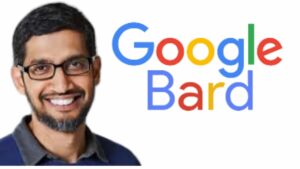
9) The Impact on Society and Culture:
The widespread adoption of AI-generated poetry will undoubtedly have a profound impact on society and culture. From influencing literary trends to challenging conventional notions of creativity, Google Bard and similar AI-powered tools will shape the way we perceive and appreciate poetry. Exploring the societal and cultural implications of this transformation is a fascinating area for further research and discussion.
Google Bard stands as a testament to the remarkable capabilities of AI in the realm of creative expression. With its ability to evoke emotions, experiment with new forms, and inspire human poets, it is revolutionizing the way we perceive and engage with poetry. As we continue to explore the possibilities and navigate the ethical considerations, Google Bard and other AI-driven tools hold the potential to unlock new realms of artistic exploration and redefine the boundaries of human creativity.
Certainly! Here are a few additional points to further expand on the impact and potential of Google Bard:
10) Bridging Cultural Divides:
Google Bard’s ability to generate poetry in different languages opens up opportunities for cross-cultural exchange and understanding. By breaking language barriers, it allows poets and readers from diverse backgrounds to share their poetic expressions, fostering cultural appreciation and promoting global unity through the universal language of art.
11) Enhancing Education and Learning:
Integrating Google Bard into educational settings can revolutionize the teaching and learning of poetry. Students can engage with AI-generated poems to study various poetic forms, styles, and techniques, gaining a deeper understanding of literary traditions and expanding their creative capabilities. Additionally, Google Bard can serve as a virtual mentor, providing constructive feedback and guiding students in their poetic journeys.
12) Therapeutic and Expressive Tool:
Poetry has long been used as a therapeutic tool for emotional expression and personal growth. Google Bard’s AI-generated poetry can provide a source of solace, inspiration, and reflection for individuals navigating difficult emotions or seeking creative outlets. Offering a new form of self-expression can empower individuals to explore their inner worlds and connect with others who resonate with similar experiences.
13) AI-Driven Poetry Contests and Collaborations:
In the future, we may witness the emergence of poetry contests and collaborations specifically dedicated to AI-generated poetry. Poets and AI enthusiasts could come together to create captivating verses that blend human imagination with AI-driven insights. Such initiatives would celebrate the intersection of technology and art while fostering innovation in the poetry community.
14) Expanding to Other Art Forms:
While Google Bard primarily focuses on poetry, the underlying AI technology can be adapted to other art forms as well. Similar AI systems could be developed to generate AI-driven music, painting, or even storytelling, creating a synergy between different artistic disciplines and pushing the boundaries of interdisciplinary creativity.
15) AI as a Catalyst for Human Creativity:
Instead of viewing AI as a threat to human creativity, Google Bard highlights its potential as a catalyst for artistic inspiration. By exploring the unique perspectives and possibilities AI-generated poetry offers, human poets can be motivated to push their creative boundaries, experiment with new techniques, and develop their distinct voices, ultimately enriching the poetic landscape.
Conclusion:
Google Bard’s innovative approach to AI-generated poetry is transforming the way we perceive, create, and interact with poetic art. Its impact extends beyond the realm of literature, influencing education, culture, and personal expression. As we continue to embrace AI-driven creativity, it is essential to balance technological advancements with human values, ensuring that the coexistence of AI and human creativity nurtures an environment where innovation thrives, art flourishes, and the essence of human expression remains at the forefront of the poetic experience.

